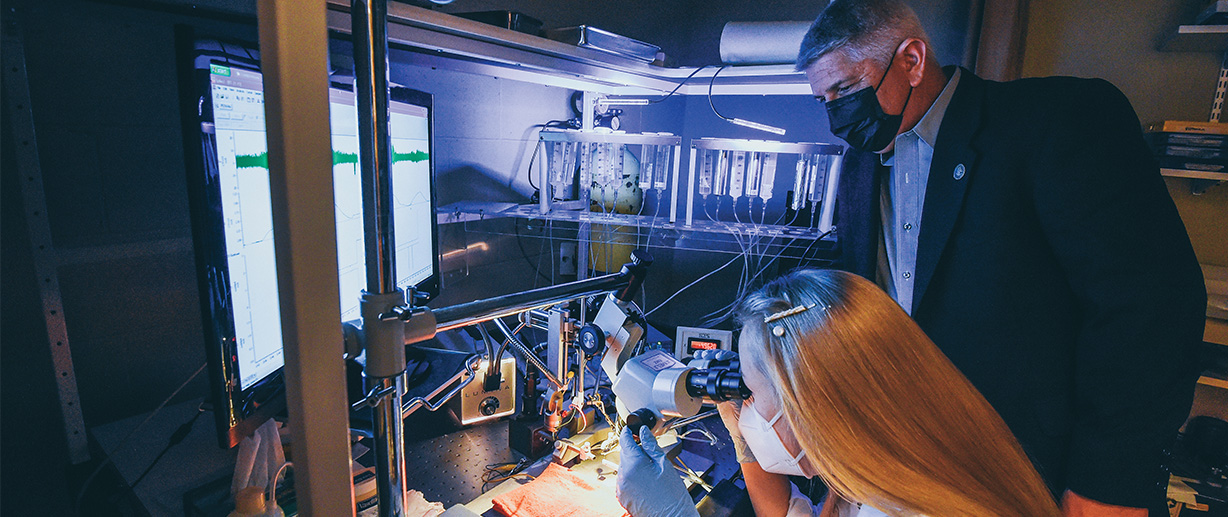Pittman, a professor of psychology and coordinator of the program in neuroscience, has been awarded a five-year, $400,755 grant from the National Institutes of Health to conduct taste research in collaboration with the University of Southern California. Dr. Lindsey Schier and her team at USC discovered a new, second mechanism that can detect glucose in the mouth.
Schier’s team will conduct behavioral tests in genetically altered mice to establish the functionality of the glucosensor, while Pittman’s group will record from taste neurons in the brains of those mice. The grant Pittman received will allow his team to do the groundwork that characterizes the neurophysiology of the glucosensor.
“One of the things I find fascinating is that we don’t know a lot about taste,” Pittman says. “We know a great deal about vision and hearing, but we don’t know all the ways our mouths can taste things. There are a lot of really big questions that can be answered.”
The study involves performing a delicate surgery on the brains of lab mice. Pittman and his research assistant, Lina Settelmayer ’21, have spent countless hours trying to perfect the procedure.
“It’s a pretty technical neurosurgery on part of the brain,” Pittman says. “The surgery takes an hour or two, and then you can spend another two to four hours searching for the taste neurons. Once you find them you can run the test protocols and record the data.”
The study could, eventually, lead to practical strategies for containing sugar consumption in humans.
Settelmayer, a psychology major from Germany, plans to go to medical school after graduation. She says participating in this project has her considering becoming a surgeon.
“The first time I did the whole procedure by myself, I felt the adrenaline as soon as I made the first cut,” Settelmayer says. “My hands were steady, my mind was focused and the mouse survived, and I was so proud.”
Whatever she ultimately decides, she says she’s grateful for the opportunity and experience that Wofford has provided.
“In my home country I would probably not have the chance to participate in this kind of research because universities are so much bigger and only a few students get the chance to be a research assistant,” Settelmayer says.
Alex Schrader ’24, a Richardson Scholar from Fredonia, N.Y., also is part of the team. He came aboard this spring.
Pittman has been involved with two previous taste research projects while at Wofford. The first sought to determine whether rats can detect dietary fats, how they detect them and how they respond. The second sought to determine how anti-anxiety drugs can act on the taste system and cause people to overeat.
“Wofford is very supportive of research because of the value it gives to students,” Pittman says. “The grant allows students to get paid like a job to learn research skills that will be so valuable after graduation.”
